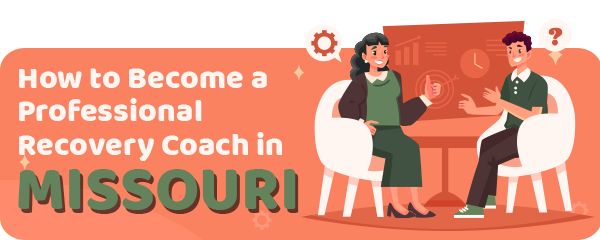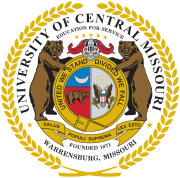Recovery coaches play an indispensable role in providing essential non-clinical support to individuals who are determined to overcome addiction and achieve long-lasting recovery.
As a recovery coach in Missouri, your primary objective is to offer guidance and assistance to individuals undergoing addiction treatment, helping them navigate their journey toward recovery.
This article aims to delve into the field of recovery coaching and shed light on its significance.
Article Table of Contents [show]
Job Description of a Professional Recovery Coach in Missouri
It is crucial to understand that recovery coaches have distinct roles from therapists and do not engage in diagnosing or treating individuals.
The primary focus of a recovery coach is to provide support and guidance to clients, helping them in their pursuit of sustainable recovery.
Recovery coaches are equipped to work with individuals struggling with various forms of addiction, offering personalized assistance tailored to their specific needs.
The key responsibilities of a recovery coach include:
- Educating clients on essential life skills, such as maintaining a healthy and balanced lifestyle through activities like cooking and cleaning.
- Collaborating with clients to establish realistic goals and develop actionable plans to achieve them.
- Conducting regular safety and wellness checks to ensure clients’ well-being throughout their recovery journey.
- Monitoring clients’ progress and holding them accountable for their actions and commitments.
- Facilitating access to additional recovery resources, such as support groups, counseling services, or vocational training, based on individual needs.
- Safeguarding client confidentiality and adhering to HIPAA guidelines to maintain privacy and establish trust.
- Meeting with clients and their families to provide comprehensive support and address any challenges or concerns that may arise.
Steps to Become a Professional Recovery Coach in Missouri
If you aspire to become a recovery coach in Missouri, here are the steps you can take:
1. Obtain a High School Diploma
To pursue a career as a recovery coach, it is necessary to have a high school diploma or equivalent qualification. If you don’t have a high school diploma, you can obtain a General Educational Development (GED) certificate as an alternative.
2. Gain Practical Experience
Practical experience is crucial in developing the necessary skills for the role.
Consider volunteering at recovery centers or organizations dedicated to addiction recovery in your local area to gain hands-on experience.
3. Stay Updated and Engaged
To excel in your career as a recovery coach, it is important to stay updated with the latest developments and changes in the field.
Engaging in classes, workshops, and continuing education programs will keep you informed and connected with other professionals in the industry.
4. Get certified
To pursue certification as a peer specialist or recovery coach in Missouri, you can follow the step-by-step process outlined on the Missouri Credentialing Board website:
- Send the training application
- Attend the comprehensive week-long training program designed for peer specialists and recovery coaches.
- Under the supervision of qualified professionals, take the online certification exam.
- After you finished training and passed the test, go on the Missouri Credentialing Board’s website to complete the next steps.
- Fill out the application form necessary for obtaining certification as a Certified Peer Specialist or Recovery Coach.
- Pay the $75 application fee.
Certification renewal is required after 24 months
For that, you have to take 20 hours of continuing education.
Of these 20 hours, 6 hours should focus on ethics.
Training and Education Opportunities in Missouri
You will need to attend a training program in order to get certification.
In Missouri, some of the organizations offering programs are:
University of Central Missouri 
The topics that will be covered in the offered course are:
- Explore the impact of addiction on the brain,
- The detrimental effects it has on various skills and abilities.
- Elucidate the nonverbal expression of joy in the brain, the acquisition of joy-related skills, and the expansion of the brain’s capacity.
- Identify the concept of cravings, the significance of BEEPS (Behaviors, Events, Emotions, People, and Situations), and the process through which addiction hijacks the brain.
- Define the role of Recovery Coaching according to ethical standards, outlining its scope and limitations.
- Employ a strengths-based and solution-focused approach by utilizing targeted questions to help clients overcome ambivalence and foster positive change.
- Identify strategies to establish trust in the client/coach relationship, building a solid foundation for effective support.
- Recognize the substantial impact of a coach’s empathy level on client outcomes and develop an understanding of its significance.
- Gain proficiency in applying Cognitive Behavior Theory and Cognitive Restructuring techniques to challenge and rectify faulty thinking patterns.
- Acquire the ability to identify triggers that may lead to relapse and collaboratively create relapse prevention plans.
- Adhere to ethical standards of conduct, ensuring compliance with legal documentation requirements while providing coaching services.
The program lasts for 60 hours and provides a mix of virtual theory and in-person practice.
At the end of the program, you can get Professional Certification through the IAPRC.
| School Name | Address |
|---|---|
| University of Central Missouri | 116 W South St, Warrensburg, MO 64093 |
Salary Outlook for Recovery Coaches in Missouri
It’s natural to have an interest in the financial opportunities that come with your chosen career path.
In Missouri, recovery coaches can anticipate earning an approximate annual income of $32,718.
Keep in mind that individual earnings can be influenced by various factors, including personal experience, geographical location, and employer.
To provide you with a better understanding, refer to the table below, which illustrates the potential income range for recovery coaches in Missouri.
Annual Salary Range:| Location | Avg. Annual Salary |
|---|---|
| Saint Louis | $33,808 |
| Florissant | $33,753 |
| Kansas City | $33,674 |
| Independence | $33,638 |
| Saint Charles | $33,625 |
| Chesterfield | $33,607 |
| Saint Peters | $33,552 |
| Lee's Summit | $33,546 |
| Brownwood | $33,533 |
| Higginsville | $33,384 |
Regional Salary in Missouri
| Region | Employed | Avg. Annual Salary | Avg. Hourly Pay | Top 10% Annual Salary | Bottom 10% Annual Salary |
|---|---|---|---|---|---|
| Columbia, MO | 30 | $57,570 | $27.68 | $74,830 | $42,490 |
| Jefferson City, MO | 190 | $50,070 | $24.07 | $63,710 | $40,270 |
| Kansas City, MO-KS | 420 | $64,670 | $31.09 | $95,370 | $40,130 |
| St. Louis, MO-IL | 350 | $65,730 | $31.6 | $91,380 | $40,350 |
| Springfield, MO | 80 | $52,770 | $25.37 | $76,560 | $32,830 |
* Employment conditions in your area may vary.
Frequently Asked Questions
Where do professional recovery coaches work in Missouri?
Professional recovery coaches work in facilities such as:
- Community Psychiatric Support and Treatment clinics
- Psychosocial Rehabilitation clinics
- Crisis Intervention
- Assertive Community Treatment
- Addiction Services
What skills do I need to become a professional recovery coach in Misouri?
Any occupation is better suited for a certain set of skills.
Professional recovery coaches in Missouri need:
- Very strong interpersonal skills
- Empathy
- Very strong communication skills
- Organization skills
- Commitment
Are there tasks that a professional recovery coach in Missouri cannot perform?
All positions have duties that cannot be performed.
For this occupation, these are:
- Medication management
- Diagnostic assessment
- Therapy
- Psychosocial evaluations
- Psychiatry services
- Conduct therapy groups
Read the full guide: How to Become a Professional Recovery Coach

